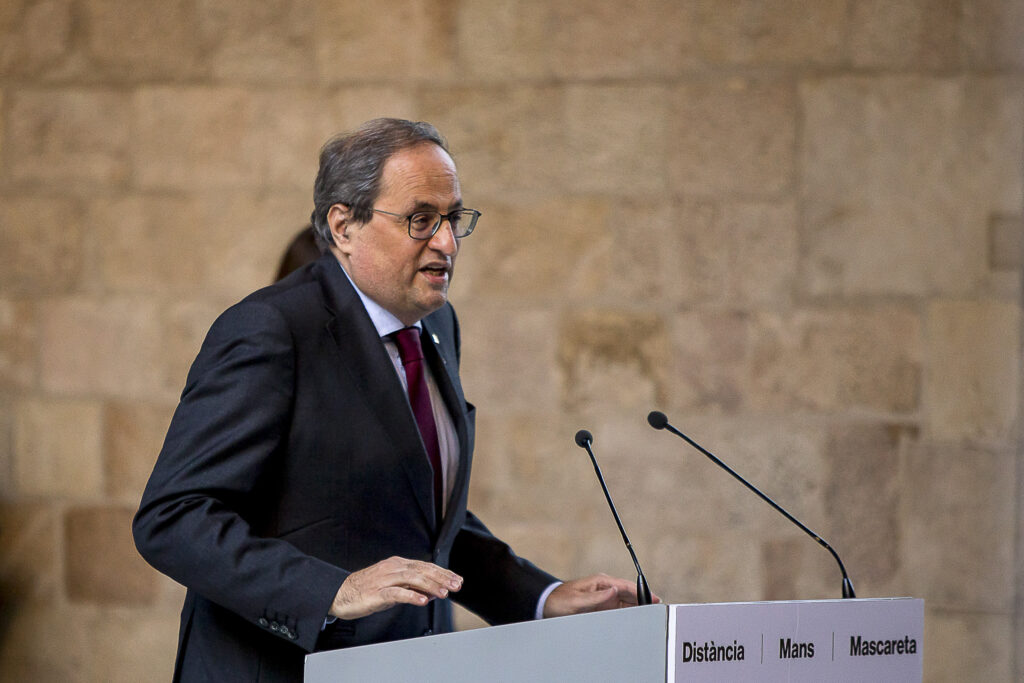17.03.2022 - 12:01
|
Actualització: 13.06.2022 - 10:15
Former Catalan president Quim Torra chose not to attend his second disobedience trial in Barcelona on Thursday morning, opting not to “legitimize” what he views as a “political trial” with his presence. Torra was due to appear in the Ciutat de la Justícia court at 9.30 but announced some hours beforehand that he would not be attending.
Magistrates were set to try him for disobedience after he refused to remove signs deemed partisan from the Catalan government headquarters building during an election period in 2019. The banners placed over the public building were messages in support of the political prisoners and exiles involved in the 2017 referendum.
Due to another complaint against him for the same actions, Torra had already been ousted from the Catalan presidency in 2020 after being found guilty of disobedience, which doesn’t carry jail time but does bar him from holding public office. His sentence for the first disobedience trial carried an 18-month disqualification.
Repressive pantomime
The former president added in his statement that he will not legitimize a new “repressive pantomime disguised as justice” and asked for protection in international courts as he says he does not recognize the legitimacy of the Spanish judiciary ,”which does not respect international treaties or fundamental rights.” In his video statement explaining why he did not turn up for trial, Torra admits, as he did in the first case, that he disobeyed the instructions because he deemed them “illegal”.
For Torra, the second trial shows that political repression from Spain continues, and he took the opportunity to express his support for all those investigated and prosecuted for similar acts related to the independence movement. “I will not legitimize this farce,” Torra says. The former president argues that banners “in defence of human rights” are legitimate and should be able to be displayed in public spaces. In this sense, he cites the example of banners in support of Ukraine which can be seen on many buildings today.
Trial in absentia
Despite not showing up, Torra was still tried in absentia on Thursday morning. As the charge does not carry a prison sentence, the law provides that a trial may still be held, and neither the prosecution nor the defence objected. The prosecution is asking for 20 months of disqualification for not removing the banner deemed partisan in the time set.
After the trial, Torra’s lawyer, Gonzalo Boye, stated that it is “surprising that a resolution of the Parliamentary Assembly of the Council of Europe is described as an anecdotal document, and it is worrying, because the next step is for us to be Poland, if we are not already.” Boye was referring to the way the prosecution referred to a report by the Council of Europe demanding an end to repression against pro-independence politicians.
The unionist civic group Impulso Ciudadano filed the complaint against the former president in June 2019 for which this trial is now taking place. Torra was instructed by the High Court of Catalonia, as a preliminary decision, to remove a banner in support of political prisoners and exiles in Catalan and in English.


